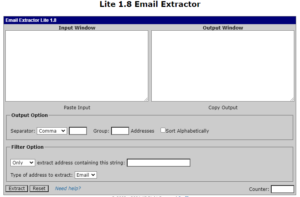
That is not to say that Google’s private alternatives are without hurdles of their own. Most of them are still far and a long way from reaching the feature parity with products like the Google Docs or the Google Drive, and in some cases their aversion to the data collection puts them at a disadvantage.
With the web version of the ProtonMail, for instance, users can not search for text in the body of an email because the data is encrypted. (Only subject lines, that are unencrypted, are searchable.) Proton also allows full search only for the downloaded emails, either through its mobile app or through a “Bridge” the application that connects to the desktop email clients like your Microsoft Outlook or the Apple Mail. Even in those cases, Proton does not support the kind of email intelligence that the Google offers, like the ability to poses recognize a flight confirmation email and then add it to your calendar.

ProtonMail
Proton’s Yen believes that those limitations will fade away as the devices become more powerful, allowing them to process more of the data offline. He also notes that the ability to add calendar appointments based on the email content will be coming later this year.
The Vivaldi has some similar limitations with its mail client, as the company is collecting no data on how people are making use of the product. While this service has some good ability to filter emails from the mailing lists into their own folder, it is far less accurate than the Google’s “Categories” system, which automatically hides the social and the promotional emails from your inbox. The interface is also kind-of pretty dense compared to what you would get from other modern email apps.
Still, the CEO von Tetzchner says that Vivaldi built its products to be opinionated and does not care about catering to everyone. “What you will later end up with when you have collected information about how the people are making use of software, you’ll end up with some of the indecision, because it is just the average, and then you can optimize for the average yourself,” he says. “Remember that the average is not a person.”
There is also the nagging issue of those business models. Both the Skiff’s Milich and the Proton’s Yen say they are focused on the freemium business models, though their free versions will likely never match that of what Google offers at no charge. The ProtonMail provides only about 500 MB of storage space on its free plan, and the Skiff may ultimately have some storage limits as well. Even the Proton’s paid subscribers get only about 5 GB of storage, less than what the Google offers for free.
. Yen also says that for those customers, the Proton’s storage plans will scale over time to become somehow closer to what the Google offers, while also being a sustainable business for the Proton.